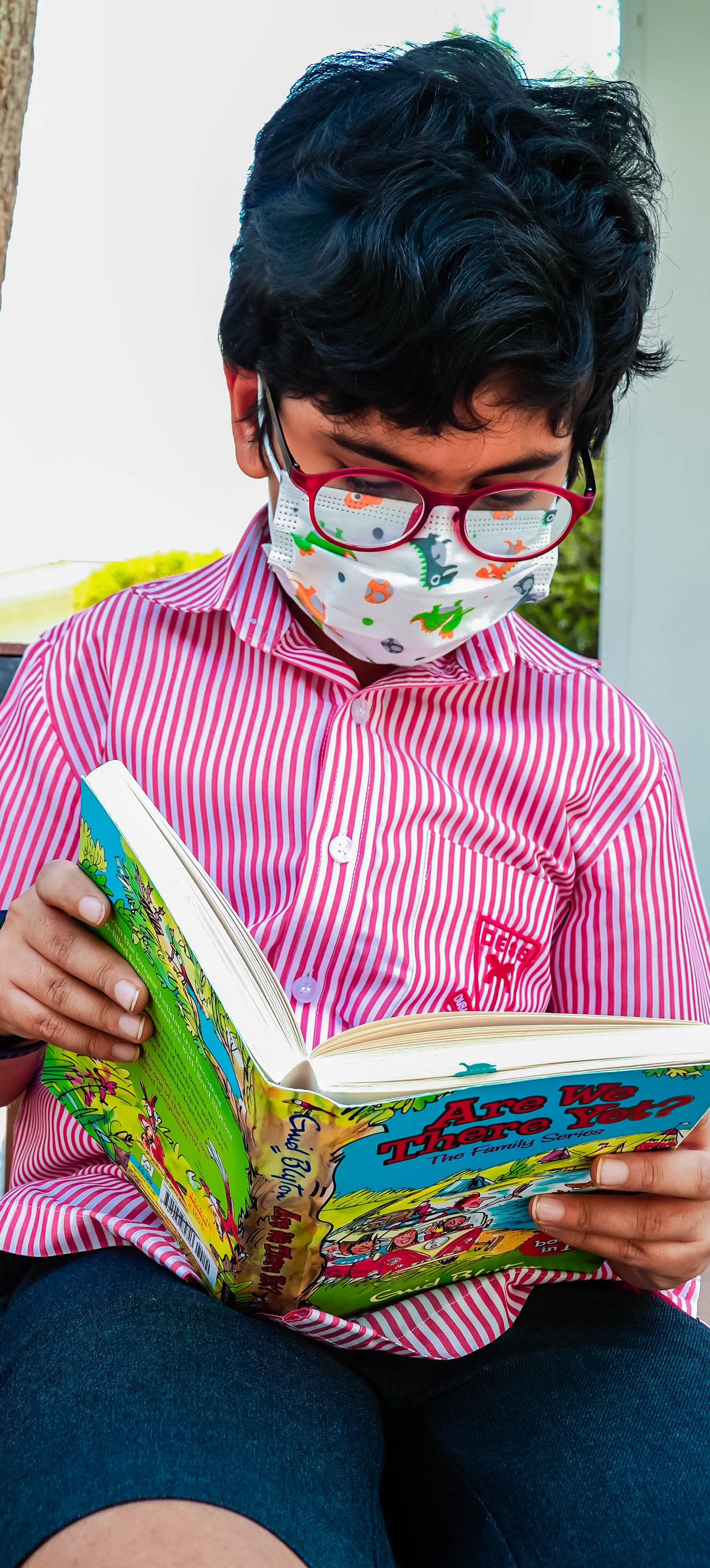
3 minute read
Embracing Mindfulness
For a primary school child, this simple idea has powerful implications. For example, if Sammy in Year Three realises that she is daydreaming about a movie that she saw yesterday, she can return
Matt Adams | Literacy Leader, DESS
Advertisement
The greatest danger of using the term ‘the new normal’ is that we actually start to believe that the current situation is normal when it is anything but. Children and teachers wearing face masks all day long is not normal; asking them to sit at a socially distanced desk all day is not normal; asking children to remain two metres apart at break time is certainly not normal.
Despite all the obstacles placed in front them, students at DESS have adapted and coped incredibly well with the challenging circumstances that have been imposed upon them.
What are the factors that have enabled students, and staff to cope so admirably? DESS prides itself on its sense of community and this has undoubtedly only grown stronger as we have relied upon each other more than ever. It turns out, however, that DESS has been preparing its children to cope with change, and all of the anxieties associated with it, for quite some time. By building mindfulness into our curriculum, we have undoubtedly provided our students with skills that have helped them to cope so admirably.
What is mindfulness? It is a term that is so overused now, appropriated by websites, book sellers, mug manufacturers and many other businesses that have managed to make a tidy profit from disingenuous promises of an instantly happier life. At DESS, mindfulness is taught as a tangible, practical life skill which can be practised daily.
At the heart of mindfulness is a very simple principle; if you are aware of your thoughts and feelings, then you can make more measured decisions about where to focus your attention.
“We have undoubtedly provided our students with skills that have helped them to cope so admirably. her focus to the maths problem she is working on. Similarly, if David in Year Two is aware that he is becoming angry, he is then able to use a calming strategy that will help him to defuse a conflict at break time. Through daily exercises, DESS children learn and practise the basic meditation techniques that enable them to make more mindful choices about their behaviours. This has become even more essential when placed into the current context. For example, how could a Year Two
student be expected to stay socially distanced when walking in a line, if he isn’t even aware that he is caught up in his thoughts about something else entirely?
Just as adults have been learning to deal with all sorts of anxieties brought on by the pandemic, children have been experiencing many more anxious thoughts than previously. Fortunately, DESS prides itself on developing emotionally resilient youngsters. Through mindfulness sessions and assemblies, children are taught the basics of the ‘freeze, fight or flight’ response and the mechanics of what is actually happening to their bodies. Adapting Steve Peters’ ideas, children are aware of their ‘chimp’ - the emotional part of their brain that responds to danger, often in totally inappropriate ways. For example, a child who has a negative attitude towards spelling may feel extremely inflated feelings of anxiety when they are about to complete a spelling test. Our students are taught strategies to recognise when the ‘chimp’ has taken over and how to switch to their ‘computer’ brain – the part of the brain that can rationalise fear and think in a more logical way.
Additionally, by teaching children about their character strengths, children are able to see themselves as unique and worthy individuals who can measure their selfworth through their personal qualities, rather than by comparing themselves to others. By drawing on the character strength of gratitude, children and staff are able to appreciate the privilege of being able to come to school each day when others around the world have been less fortunate.
One thing is for certain, the ‘new normal’ will change rapidly over the coming months. Fortunately, the DESS community will be well equipped to face the emotional uncertainties that will inevitably arise.











